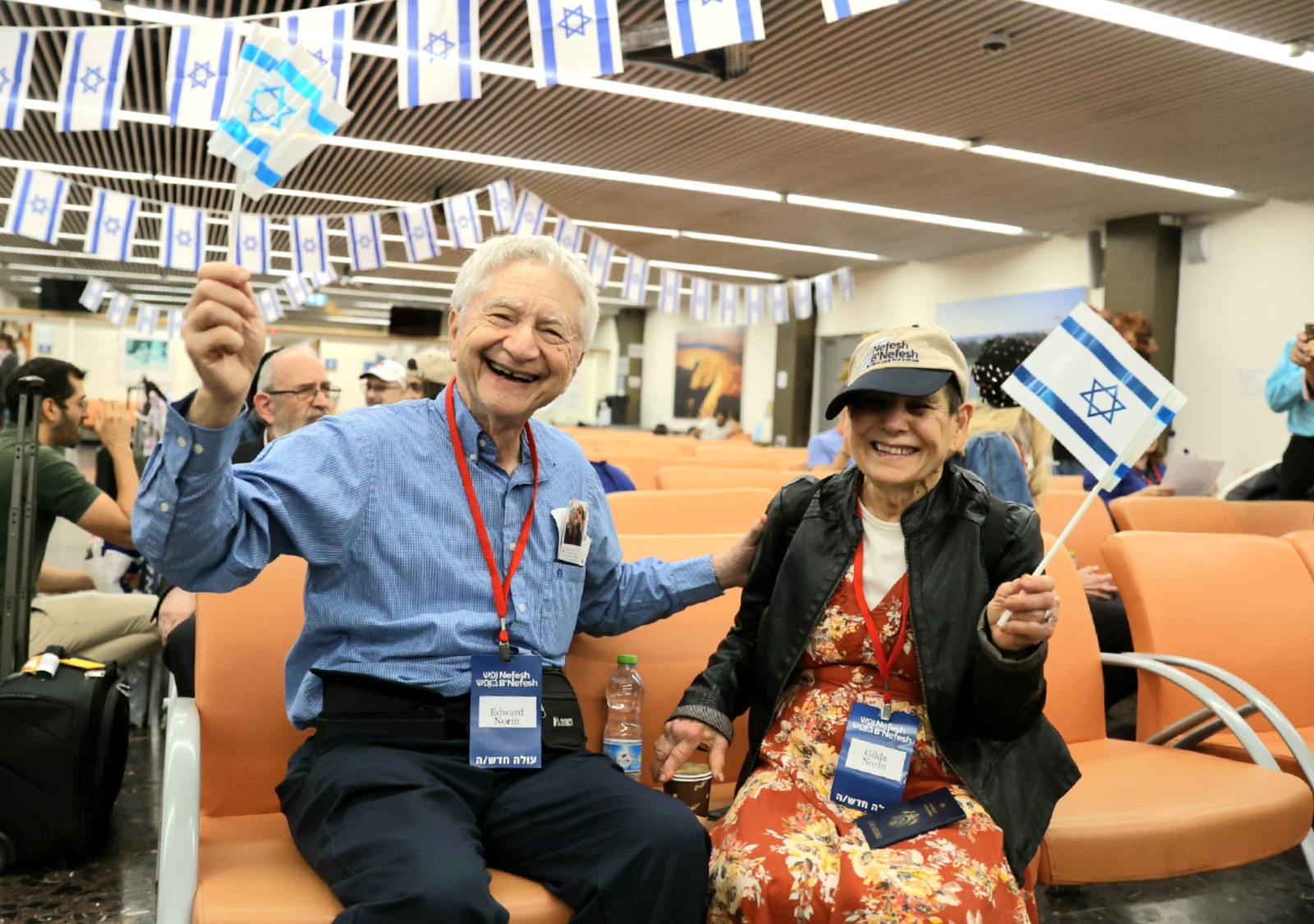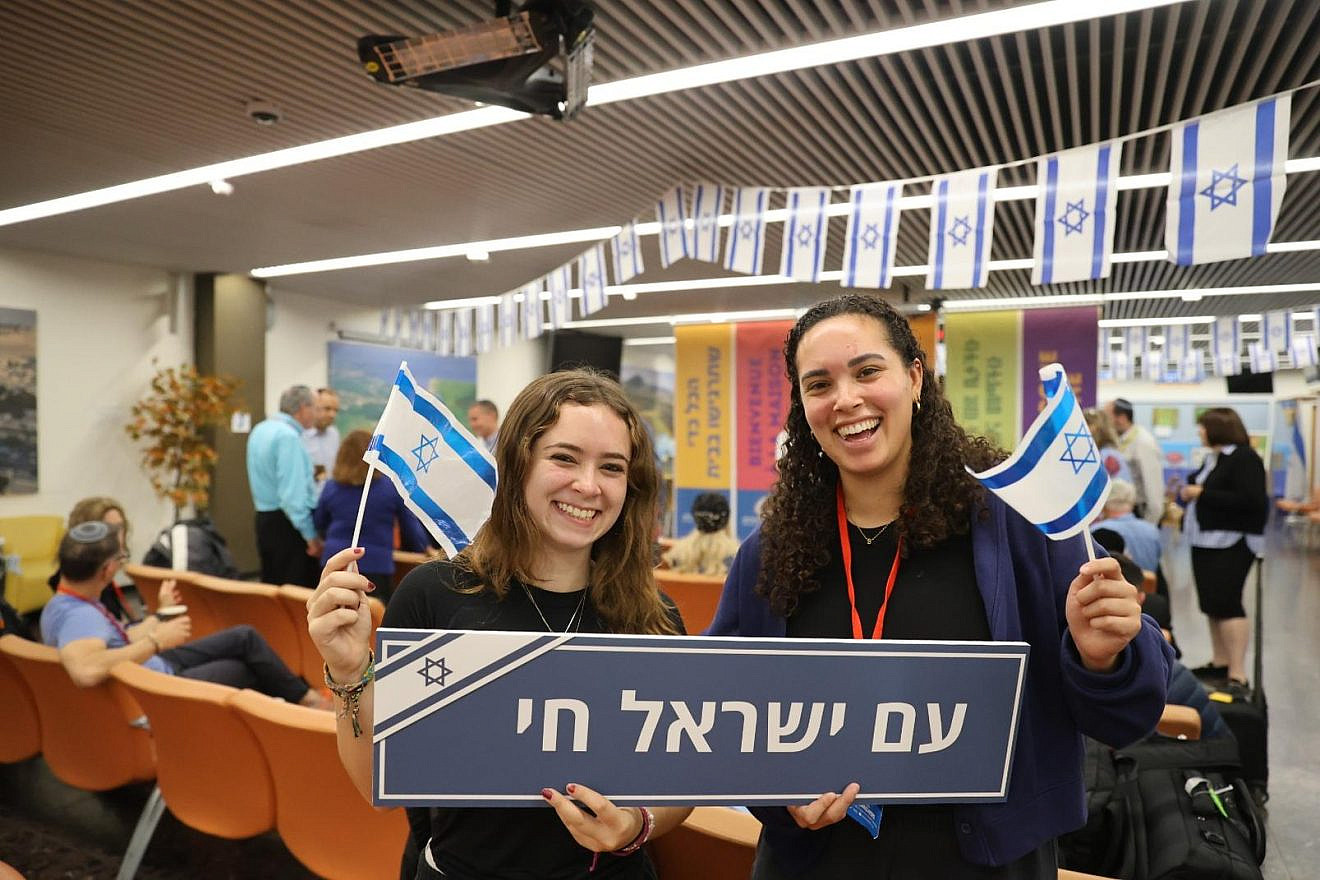As rockets from Gaza continue to rain down across Israel following the carnage of the Hamas attack on the western Negev that began on Oct. 7, and foreign nations including the United States consider further evacuations of their citizens, many new immigrants to the Jewish state are for the first time facing the harsh reality of living at war.
Dov Lipman, former member of the Knesset and CEO of the Yad L’Olim NGO, shed light on how traumatic the last few weeks have been for olim in Israel. He made aliyah from the United States in 2004.
“Keep in mind, Israel’s last full-fledged operation [against Hamas in Gaza], ‘Protective Edge,’ took place in 2014. Tens of thousands of olim have arrived since and had not yet experienced anything of the kind until Oct. 7,” Lipman told JNS.
Yad L’Olim placed hundreds of newcomers in volunteer positions, both medical and non-medical staff, who reached out to find out how they could be of service to the country.
Yad L’Olim, which provides professional, administrative and social support to olim as they settle into Israeli life, is working on many fronts to implement programs to assist those in need.
“We’ve supported concerned parents of lone soldiers in the field, asking us for material equipment to be delivered to their loved ones on the front lines,” said Lipman.
“We’ve offered free-of-charge mental-health treatment and gave many olim the opportunity to sign up online for free therapy sessions. Unfortunately, we also had to arrange funerals of soldiers on behalf of their families,” he added.
“Lone soldiers” are in the Israel Defense Forces without close family in Israel who can help them.
Some olim came come from the former Soviet Union recently and have already been exposed to war, in Ukraine, Lipman noted.
Shira Fishman, 46, who moved to Israel two months ago from Denver, told JNS that while she was devastated and frightened in the aftermath of the Oct. 7 Hamas massacre, as a mother she was still committed to ensuring her children continue to build strong ties within the country even during challenging times.
“Our whole family volunteered for Leket, sorting through apples that had been collected by the foundation. Every day, new initiatives come up. I am a physician and I want to be of help to my country. My husband works in marketing, and he also wishes to volunteer to get the message out there. The world’s memory is very short and the moral compass isn’t always so clear when it comes to Israel,” she said.

‘Response off the charts’
Joseph Gitler, founder and chairman of Leket Israel, which rescues food that otherwise would go to waste from commercial and agricultural sources and delivers meals to residents in the south and soldiers based in the Golan Heights, said new immigrants have lined up to volunteer since the beginning of the war.
“The response of civil society has been off the charts. I wish we did not need such a communal spirit right now, but we do,” Gitler told JNS.
“Olim who just moved here as well as those who have been in the country for years have helped deliver food to soldiers. In our warehouse [in Ra’anana], I hear languages from many different parts of the world: U.S., U.K., Canada, Australia, Brazil, Argentina … , you name it,” he said.
Yael Katsman, vice president of communications for Nefesh B’Nefesh, an organization that was founded in 2002 to facilitate immigration from North America, told JNS that the war is no deterrence for those who planned to move to Israel permanently.
“We’ve had 200 new applications for aliyah in the last two weeks, and we are working around the clock to expedite a lot of our services.”
Despite the escalating tension in the region, Nefesh B’Nefesh welcomed 25 new olim from New York, Los Angeles and Miami who arrived on an El Al flight at Ben-Gurion International Airport on Oct. 19.
‘There is extraordinary unity’
Katsman’s team also doubled up on its efforts to help the parents of lone soldiers.
“We organize webinars and Zoom broadcasts with IDF officials to help parents of lone soldiers filled with anxiety. We were doing it on a regular basis before the war but we’ve expanded our efforts since.”
LiAmi Lawrence, co-founder and CEO of KeepOlim, a nonprofit organization that supports new immigrants and returning Israeli citizens, told JNS some traumatized olim are leaving. However, the majority are eager to help as they have realized “it’s us against them—we stand united as olim and Israelis.”
On Tuesday, KeepOlim will launch a 24/7 support hotline called Tikva, with the sole objective of assisting olim and lone soldiers who are facing challenges. This initiative will connect those in need to therapists who speak a wide range of languages, for everyone enrolled to receive treatment in their mother tongue.
Simcha, 44, from Chicago, is a volunteer for the Sar-El organization that recruits civilians to assist soldiers in a logistical support role. He told JNS that many volunteers and soldiers on IDF bases are, in fact, olim.
“There are groups of olim volunteering here from America, France and the former Soviet Union. Most of them have been in Israel for only a few years but are still taking an active role in helping Israel win this war. There is extraordinary unity among the volunteers and the soldiers leading them.”


























